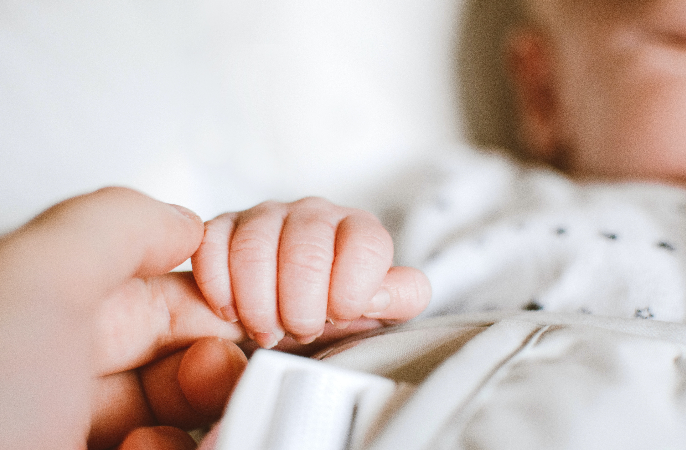In the UK, a bare trust is a legal arrangement where a trustee holds assets on behalf of a beneficiary until they reach a legal age to receive the trust. In England and Wales, this is 18 years of age, and for Scotland, this is 16 years and over.
This type of trust is straightforward and offers a simple way to transfer assets into a secure account while preserving the beneficiary’s access rights. Typically, this trust is seen as a benefit for parents or grandparents who are searching for a way to build additional savings for new family members or for future family expenses.
In this blog, we will delve into the process of building a bare trust, discussing its definition, key features, advantages, and legal assistance required for establishing a secure future for your finances.
What is a bare trust?
A bare trust, also known as a simple trust or a nominee trust, is a basic form of trust commonly used for asset management of a young person who is not yet eligible for their own finances.
In this type of trust, the settlor (the person who creates the trust) and the trustee (the guardian of the trust) have a legal title and ownership of the assets. However, they are only able to hold them for the benefit of the beneficiary (the person who receives the assets).
Unlike other types of trusts, the settlor’s and trustee’s role is passive – they can input benefits into the trust but they have no authority or decision-making rights with regard to the use of the assets once the beneficiary is of age.
Advantages of bare trusts
When it comes to securing the right trust for your personal circumstances and finances, it is crucial to consider the purpose of the trust, the type of benefactor, and question how much return you want on this kind of investment.
As such, the advantages of using a bare trust are:
- Tax efficient
Bare trusts can offer tax advantages or exemptions depending on the input. This is because the transfer is typically to minors, who are not eligible for tax payments. The beneficiary assumes the tax liability, which will reduce the burden for the trustee to repay any taxes incurred.
- Protected
Assets held in a bare trust are protected, and, as such, they are withheld from the trustee’s personal finances and any issues that may occur. If creditors are called in for any personal debt relating to the settlor or trustee, they cannot make claims on the bare trust, providing an added layer of protection.
- Straightforward
Due to the simplicity of the bare trust, these are commonly used in estate planning to transfer assets to future generations. By applying these assets into a bare trust, the settlor can ensure that the required finances pass directly to the intended beneficiaries while retaining some control during their lifetime.
- Reliable
Bare trusts offer a level of reliability due to their straightforward application process compared to other types of trusts that require higher deposit charges or requirements that must be met before access can be granted. In this respect, bare trusts can be a vital addition to individuals who want to keep their finances secure and easily accessible.

Disadvantages of bare trusts
Like all financial packages, finding one that works for you can be difficult if you’re not aware of all the elements and procedures related to the selected trust. As such, we want to highlight some of the disadvantages of bare trusts to provide a fuller picture of what they are offering.
- Lack of flexibility
One significant disadvantage of a bare trust is the limited flexibility it provides. Once the assets have been transferred into the trust and the beneficiary reaches legal age, they assume full control, leaving little room for adjustments. This lack of flexibility can be a disadvantage in situations where changes in circumstances arise, such as financial discrepancy, the death of the trustee, or the personal situation of the beneficiary.
- Inheritance tax consideration
Depending on the time and legislation when you created the trust, the assets held in a bare trust may still be subject to inheritance tax upon the death of the settlor. This potential tax input can strongly impact the overall output of the trust for the benefactor. As of 2023, the UK tax bracket is currently sitting at 40% for estates with over £325,000 worth of assets.
- Asset protection limitations
While bare trusts provide some level of protection by separating trust assets from the trustee’s personal liabilities, they may not offer the same level of protection as other packages. Creditors and debt collectors may still be able to make claims on the assets, but this depends if there is fraudulent activity or improper use of the trust.
- Withheld control for settlors
For individuals who wish to retain control and decision-making power over their assets (even after transferring them) into a trust, a bare trust may not be the most suitable option as it falls completely to the trustee management and benefactor.
Bare trusts provide a flexible and uncomplicated method of managing and transferring assets to enhance an individual’s future, even if you’re no longer here.
With minimal establishment time, trustee involvement, and input required, beneficiaries can enjoy the benefits and control of the assets held in trust for whatever they decide. However, it’s essential to consult with a qualified professional, such as a legal or financial advisor, to determine if a bare trust aligns with your specific goals.
The Peter Ross team offer a variety of services, including taxes and trust support so you can make the best decision for your finances. Get in touch today to discuss your options.


